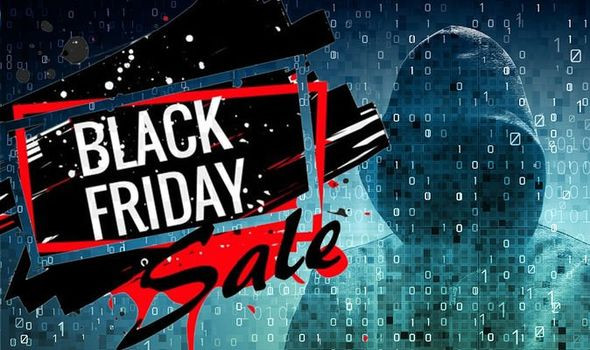Beware of cyber scams during Black Friday sales
(Baonghean.vn) - Cyber security experts from Bitdefender Security Company (Romania) warn that the Black Friday discount shopping event is an opportunity for hackers to carry out phishing attacks, requiring consumers to pay special attention to cybersecurity issues.
Accordingly, Black Friday 2023 deals, traditionally held in late November, not only bring shopping excitement to consumers but also increase the risk of cyber fraud.

As Black Friday approaches, the hunt for bargains is in full swing. Shoppers everywhere are gearing up, making wish lists to snag the best deals of the year. Billed as a once-a-year sale, it’s a day when retail dreams come true and savvy shoppers score big. But as the excitement grows, so do the opportunities for cyber fraudsters.
This shopper’s paradise will turn into a prime hunting ground for cybercriminals, who want to exploit consumer complacency and vulnerability to the fullest. Cybercriminals see Black Friday not only as an opportunity for consumers to save money but also as an opportunity to make billions of dollars through a variety of scams. With shoppers focused on the thrill of hunting for bargains, the need for increased awareness and vigilance becomes paramount.
Online threats during Black Friday 2023
The range of online threats facing shoppers during Black Friday is vast. Scammers use email, text messages, and social media to reach their targets. While some scams are easy to spot, others involve more sophisticated scams that specifically target enthusiastic online shoppers.
Millions of consumers fall victim to scams every year, but the Black Friday sales are a peak time for cybercriminals. Security firm Bitdefender has been tracking crime trends during events like Black Friday, aiming to inform the public about common email scams to protect their finances and personal data.
Spam emails during Black Friday vary from harmless unsolicited messages aimed at luring shoppers into stores to more insidious content. The focus here isn’t on the aggressive marketing emails that flood inboxes during peak sales, but rather on email-based scams that capitalize on the Black Friday hype.
In a report by Bitdefender's Anti-Spam Lab, anti-spam researcher Viorel Zavoiu published statistics on the topics and phishing trends of this year's Black Friday event. Accordingly, the percentage of spam on Black Friday, which was almost non-existent after Halloween, increased and peaked at 22% on November 13. This email spam trend, including both marketing and phishing activities, is expected to increase throughout the week of Black Friday.
Bitdefender's anti-spam filter found that only 56% of all Black Friday-themed spam between October 26 and November 13 was legitimate marketing. The remaining 46% were identified as scams. These included scam campaigns impersonating major retailers like Amazon and Target, as well as tempting deals on luxury goods and gadgets. 39% of such spam originated in the Netherlands, with the US contributing just 24%, a notable drop from the previous year.
Bitdefender's research also found that finance and retail are the most targeted sectors in recent phishing campaigns. Black Friday shopping scams are intertwined with traditional phishing attempts, with campaigns attempting to hijack accounts from major online platforms like Amazon, eBay, and PayPal, while also targeting shoppers' banking information.
Statistics show that on November 6, 42% of all PayPal-related emails were marked as scams, and on November 13, 25% of Amazon-themed emails were scams.
How to avoid scams on Black Friday deals2023
Using their extensive experience, scammers consistently target eager but uninformed consumers with a series of “amazing deals”, aiming to steal identities and commit fraud.
Recently, many Black Friday 2023 scams have been designed to entice users with early access to exclusive deals, promotions, and free gift cards or prizes from popular retailers.
Many of these email scams have demonstrated the use of explicit geotargeting, allowing scammers to tailor their attacks to specific geographic locations. These phishing emails often include “malicious text,” or expanded, often hidden text intended to bypass keyword-based spam filters.
Black Friday 2023 scams are rife, including multiple fake giveaway scams targeting well-known consumer brands. These emails attempt to extract personal and payment information from recipients through fake surveys and bogus prizes, including smart devices and gift cards, often luring victims with a small shipping fee.
Some of the most common email themes that cybercriminals use to scam consumers include: Get a chance to win a $100 Amazon voucher; Get in the Black Friday spirit with a $500 ALDI Gift Card; Black Friday - Save more, shop more: Watches on sale at huge discounts - Act fast; Unprecedented Black Friday deals: Get the latest gadgets now,…
With Black Friday considered a hotbed of cybercrime, it is important that consumers remain vigilant to avoid falling for malicious or fraudulent shopping links.
Therefore, with the growing trend of online shopping, especially during peak seasons such as Black Friday, consumers need to pay special attention to check the legitimacy of any promotional offers, as well as be wary of spam messages.
Security experts say being alert to potential scams has become as important as finding the best deals. Staying alert, staying informed about current threats and adopting strong security measures will help consumers proactively protect themselves from the dangers of financial fraud that are increasingly prevalent in the digital world.


